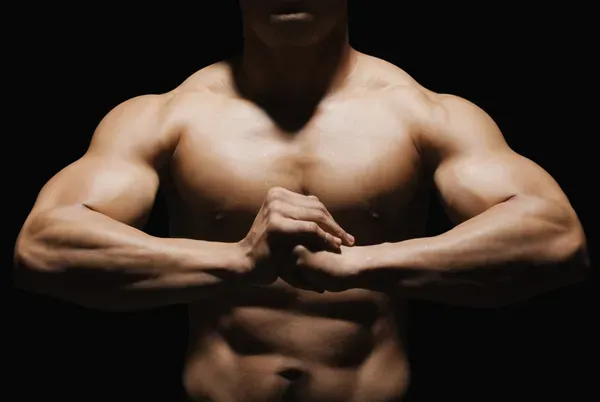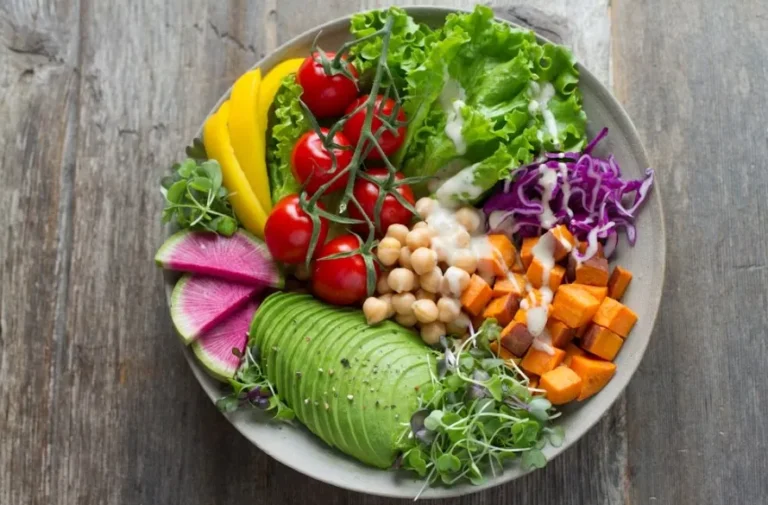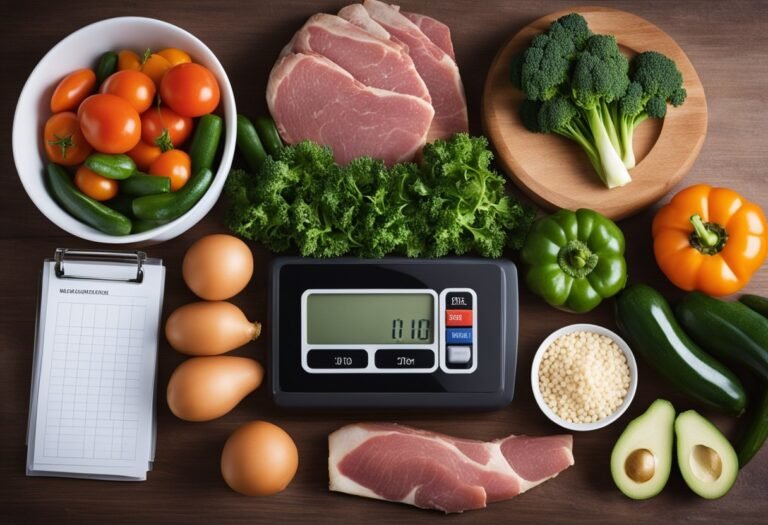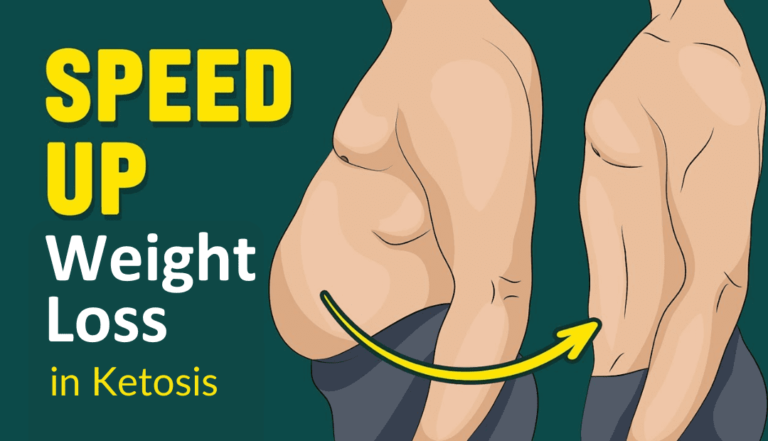Keto Diet For Muscle Gain: A Complete Guide
The keto weight loss plan is famous for weight reduction and other health blessings. People often anticipate that it’s far impossible to build muscle on a low-carb eating regimen like keto.
While low-carb diets restrict carbohydrates, which assist promote muscle boom by using liberating insulin, latest research has proven that excessive-degree powerlifters could make power gains on a keto diet.
However, gaining muscle with out carbs can be extra hard. This article offers a complete guide Keto Diet For Muscle Gain.
What is The Keto Diet?
The ketogenic diet, commonly known as the keto diet, is a diet that emphasizes high fat intake and low carb intake.
The purpose of this diet is to transition your body into a metabolic state called ketosis, which is achieved by depriving the body of its preferred source of fuel, glucose or carbs, and replacing it with fat.
In ketosis, the body uses fat to produce ketone bodies, which serve as an alternative fuel source.
To enter ketosis, most people need to consume fewer than 50 grams of carbs per day, while getting the rest of their calories from a high fat, moderate protein diet.
It typically takes 2-4 days to enter ketosis if you consume less than 50 grams of carbs per day, but some people may require a week or longer.
Many people choose the keto diet for weight loss, as it has been shown to be effective in reducing weight and curbing appetite.
Additionally, the keto diet can be used to help people with epilepsy, control blood sugar levels, and potentially reduce the risk of chronic conditions such as Parkinson’s, Alzheimer’s, and certain types of cancer.
Health Benefits of the Ketogenic Diet
The ketogenic diet has numerous potential health benefits. It can help with weight loss, improve lipid markers for cardiovascular health, reverse diabetes or reduce the need for medication, and improve responses to cancer treatments.
However, in many cases, the evidence is not conclusive, and we need more research to determine how it affects human health.
Can you build muscle on keto?
Studies indicate that you can build muscle on a keto diet. For instance, a study involving 25 college-aged men found both a traditional Western diet and a keto diet equally effective for muscle gain, strength, and performance.
Other studies suggest that keto can provide similar strength and performance gains as a high-carb diet while also helping to lose body fat.
However, if you are new to the keto diet, you may experience a temporary drop in strength and performance due to your body adapting to relying on ketones.
Learn More: How To Make The Keto Diet For Weight Loss And Muscle Gain
How to build muscle on a keto diet
The following suggestions can assist you in creating a keto diet that promotes muscle growth.
There are three key components to bear in mind when trying to build muscle on a keto diet, which are also relevant for any diet:
- Regularly engage in weightlifting as nothing encourages muscle growth like weight training.
- Consume enough calories to promote muscle growth. If you eat too few calories, it will be harder to build muscle.
- Eat a sufficient amount of protein. While the standard ketogenic diet provides enough protein for most people, a high-protein diet can make it easier to gain lean muscle mass.
To get a clear idea, let’s start with the diet.
Determine your calorie intake
To build muscle on a keto diet, remember these three things:
- Regularly engage in weightlifting.
- Consume enough calories to promote muscle growth. Determine your maintenance calories and increase your calorie intake by 15% to build muscle. Gain no more than 0.25–0.5% of your body weight per week to avoid accumulating too much fat.
- Eat a sufficient amount of protein. Eat 0.7–0.9 grams of protein per pound of body weight for muscle building. You can safely consume around 1 gram of protein per pound of body weight and stay in ketosis.
To stay in ketosis, eat fewer than 50 grams of carbs per day. Timing your carb intake around your workouts can be beneficial, or try a targeted keto diet by consuming your daily carbs around your workouts to improve exercise performance.
Fat should make up the rest of your diet after accounting for protein and carbs. Divide the final number by 9 to determine your daily fat requirements.
By keeping these tips in mind, you can create a keto diet that promotes muscle growth and helps you achieve your fitness goals.
Eat plenty of protein
Sufficient protein intake is essential for muscle building, as it serves as the building block for muscles. Eating 0.7–0.9 grams of protein per pound of body weight is recommended for muscle growth, according to most studies.
Keto dieters are concerned about consuming too much protein, as it could stop their body from making ketones through gluconeogenesis. However, studies have shown that people can safely consume 1 gram of protein per pound of body weight and still remain in ketosis.
Track your carb intake
On a muscle-building diet, carbs usually make up the bulk of calories. But to stay in ketosis, you need to limit carbs to less than 50 grams per day.
Timing carb intake around workouts can be helpful for performance, known as targeted keto diet. If struggling with workouts, try targeted keto. Otherwise, consume carbs whenever convenient.
Increase your fat intake
On the keto diet, it’s important to monitor your fat intake since your body uses fat as its primary source of fuel when you’re in ketosis. After determining your protein and carb needs, the rest of your diet should consist of fat.
To calculate your daily fat needs, subtract your protein and carb needs from your daily calorie needs, then divide the remaining number by 9.
For example, a 155-pound person may consume 185 grams of fat if following a 2,300-calorie muscle gain diet.
These guidelines align with the standard keto recommendations of 70–75% of your daily calories coming from fat.
Learn: Best Keto Diet Plan For Beginners
Tips For Building Muscle On A Keto Diet
Here are some tips that can help you build muscle while on the keto diet:
- Be patient: If you’re new to the keto diet, you may experience a temporary drop in strength and performance. This occurs as your body adapts to the new diet, so don’t quit early and remain patient.
- Keep track of your carb intake: This helps to ensure that you consume fewer than 50 grams of carbs per day to remain in ketosis.
- Be prepared for initial side effects: Some people may experience the keto flu when starting this diet. The keto flu is a set of symptoms such as fatigue, nausea, irritability, and insomnia that occur as your body adjusts to its new routine.
- Be mindful of hidden carbs: Beverages and condiments often contain carbs that many people don’t account for. So, it’s crucial not to overlook them.
- Test your ketone levels regularly: You can use keto strips or a keto breath test to determine if you’re in ketosis or if you need to adjust your diet accordingly.
- Get plenty of sleep: Proper sleep is essential for muscle gain and exercise performance.
In summary
The keto diet can be as effective as traditional higher carb diets for building muscle, but it requires careful monitoring of your protein, carb, and fat intake.
By following the above guidelines, you can plan an effective keto strategy for building muscle. However, it’s still unclear whether the keto diet offers more benefits for building muscle than a traditional higher carb diet.
Frequently Asked Questions
[sp_easyaccordion id=”2881″]







